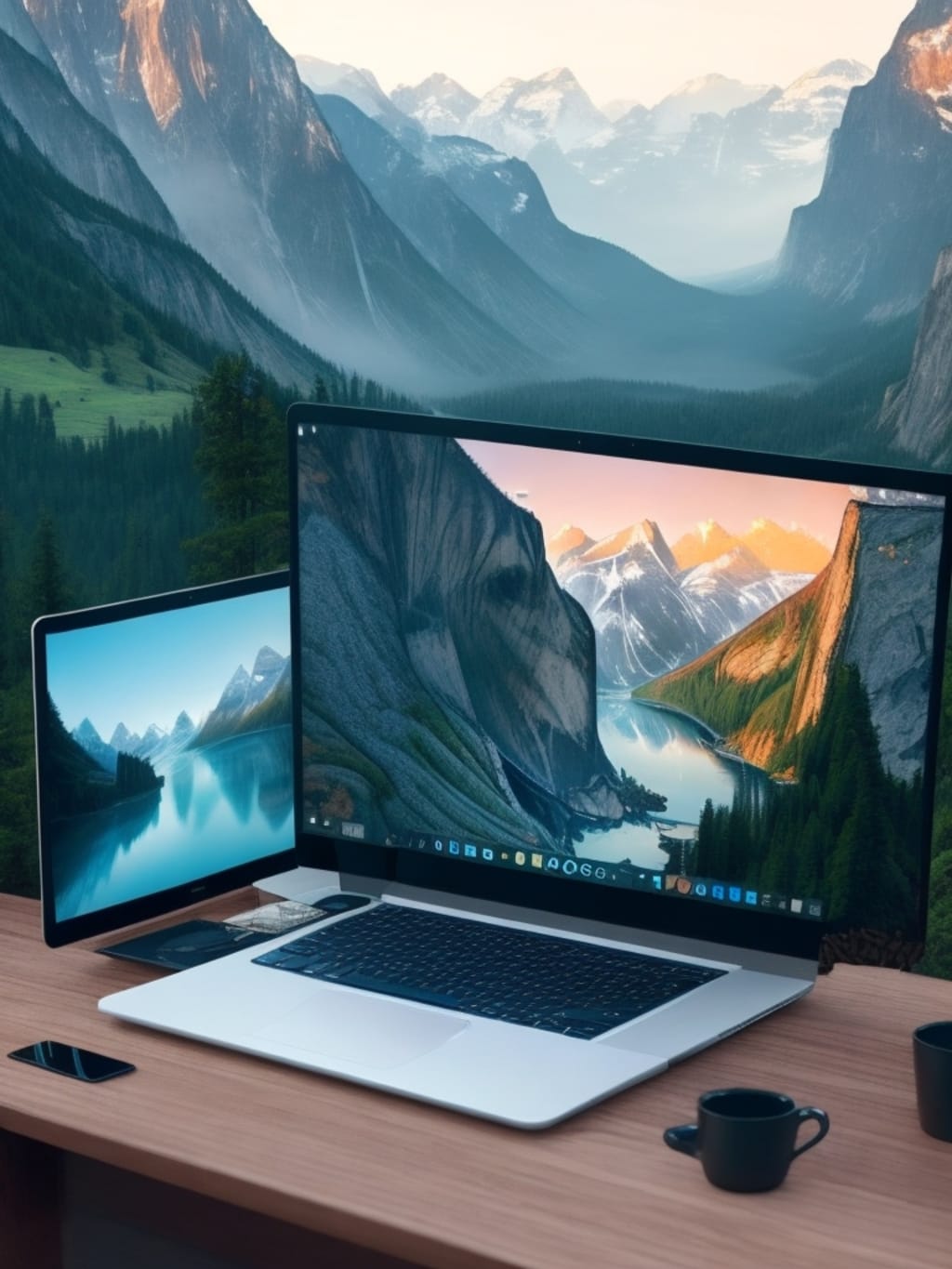
Choosing between a laptop and a desktop computer can be a significant decision, as it impacts your computing experience and productivity. To make an informed choice, it's important to consider various factors such as portability, performance, upgradability, display options, and cost. Let's explore each aspect in detail to help you determine which option is best suited for your needs.
Portability:
One of the primary advantages of a laptop is its portability. Laptops are designed for mobility, allowing you to work or use your computer from virtually anywhere. Whether you're a student, a digital nomad, or frequently on the move, a laptop offers the flexibility to work on assignments, projects, or tasks while on the go. With their lightweight and compact design, laptops can easily fit into backpacks or travel bags, making them a convenient choice for those who require mobility in their computing setup. On the other hand, desktops are stationary machines that are meant to be used in a fixed location, such as an office or home setup. They are not designed for portability and lack built-in batteries, requiring a power source to operate.
Performance:
When it comes to raw performance, desktops generally have the edge over laptops. Desktop computers can accommodate more powerful components, including high-end processors, dedicated graphics cards, and advanced cooling systems. This makes them ideal for resource-intensive tasks such as gaming, video editing, 3D rendering, and other demanding applications. The larger form factor of desktops allows for better heat dissipation, which helps in maintaining optimal performance during prolonged usage. While laptops have made significant advancements in performance, they often prioritize energy efficiency and thermal limitations due to their compact size, which can impact their ability to handle heavy workloads.
Upgradability:
If you value upgradability and the ability to customize your system over time, desktops offer more flexibility in this regard. Desktop computers typically have more space for additional drives, RAM modules, and expansion cards. This allows you to easily upgrade individual components as technology advances or your needs change. You have the freedom to enhance your desktop's performance, storage capacity, or connectivity options by replacing or adding new hardware. In contrast, laptops are generally more limited in terms of upgradability due to their compact and integrated design. While some laptops may allow for RAM or storage upgrades, they often have fewer options compared to desktops.
Display and Ergonomics:
Desktops provide greater options for display customization. You can choose from a wide range of monitor sizes, resolutions, and aspect ratios, including ultrawide or curved displays, to enhance your productivity or gaming experience. Additionally, with a desktop setup, you have the flexibility to select a keyboard, mouse, and other peripherals that suit your preferences and ergonomic needs. This enables you to create a comfortable and personalized workstation setup. Laptops, while they have built-in displays and keyboards, often have smaller screens and limited ergonomic adjustments, which may impact long-term usage and comfort.
Cost:
Cost is an important consideration when deciding between a laptop and a desktop. In general, desktops tend to offer better value for money in terms of performance compared to laptops within a similar price range. This is because desktop components are often more affordable and easier to upgrade individually, allowing you to allocate your budget towards specific areas based on your needs. However, it's important to note that high-end desktop configurations or specialized components can be expensive. On the other hand, laptops vary in price based on their specifications, portability features, and build quality. High-performance laptops or ultraportable designs often come with a higher price tag due to their advanced technology and premium build.
In conclusion, choosing between a laptop and a desktop depends on your specific requirements and priorities. If portability is a key factor and you need the flexibility to work or use
your computer on the go, a laptop is the obvious choice. Laptops are lightweight, compact, and designed for mobility. However, if you prioritize high performance, extensive upgradability, or customization options, a desktop may be the better option. Desktops excel in handling resource-intensive tasks, provide greater flexibility for hardware upgrades, and allow for customization in terms of displays and peripherals. Consider your computing needs, work environment, and budget to make an informed decision that aligns with your preferences and usage patterns.
About the Creator
sajeeka don
Passinate storyteller on Vocal Media. Weaving words to inspire, entertain, and evoke emotions. Join me on a journey of discovery through captivating tales and thought-provoking narratives.
Enjoyed the story? Support the Creator.
Subscribe for free to receive all their stories in your feed. You could also pledge your support or give them a one-off tip, letting them know you appreciate their work.






Comments
There are no comments for this story
Be the first to respond and start the conversation.